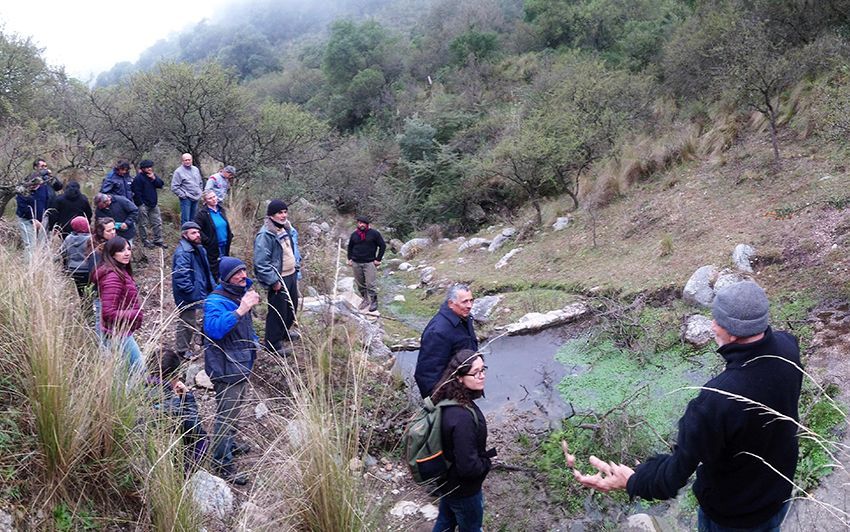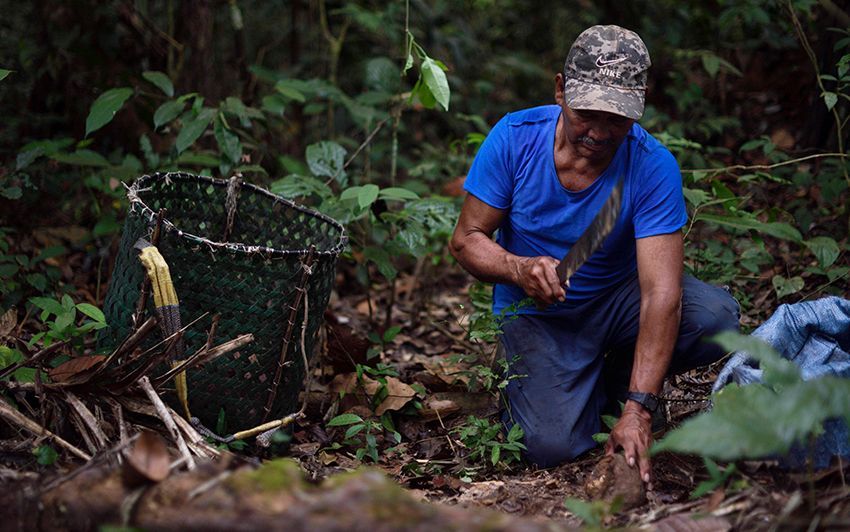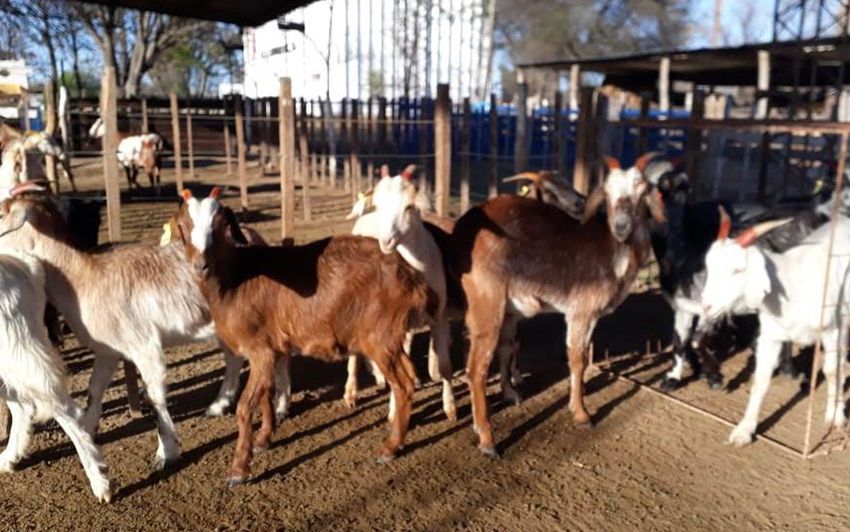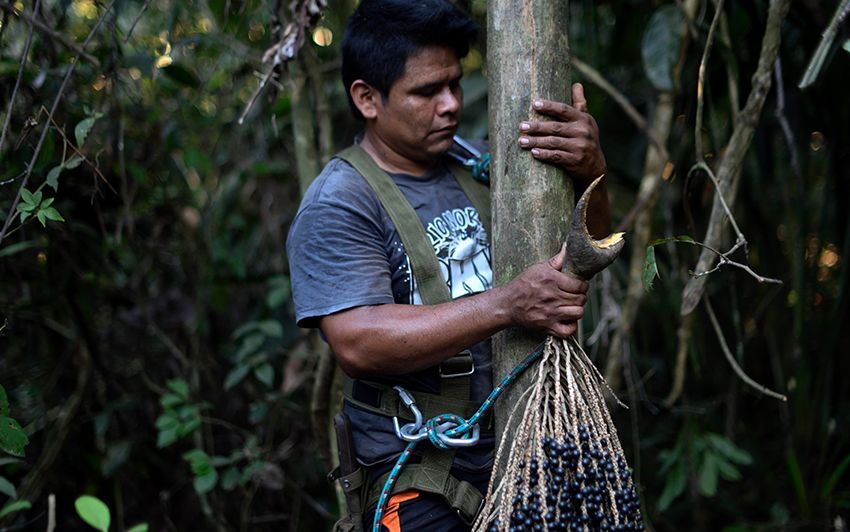Nine projects in twelve Latin American countries, focused on forest protection and regeneration, work hand in hand with communities and municipalities, in coherence with national policies. These experiences can be replicated at the level of public policies in other nations.
October 20, 2019. That countries can meet their climate commitments (NDCs), and thereby address climate change, is one of the main objectives of the Forests, Biodiversity and Ecosystems (FBE) component implemented by EUROCLIMA+ (a programme funded by the European Union and co-financed by the federal government of Germany as well as the governments of France and Spain) in 12 Latin American countries, including some protected areas. For this reason, its representatives met at the third Congress of Protected Areas of Latin America and the Caribbean, in Lima, Peru.
Michel Schlaifer, technical advisor of the component, explained that many of the projects related to forests are linked to protected areas, considering the multifunctionality of forests and the territorial approach, key elements in improving climate change adaptation capacities. For this reason, the Congress was an opportunity to connect initiatives and work in a collaborative manner.
"It is important to talk about third-generation protected areas, which means seeing their connectivity with biological corridors, and not just as conservation sites. It is also important to show protected areas with an integral and holistic sustainable development vision," said Michel.
In confronting climate change, protected areas perform an essential task because they store carbon dioxide, but they also allow the perpetuity of the living environments of the communities that inhabit and depend on them. Luis Arteaga, technical director of the Bolivian Association for the Research and Conservation of Amazonian Andean Ecosystems (ACEAA), added that a key challenge is to talk about climate change when talking about protected areas, and vice versa.
Local communities for the preservation of forests
Management of Non-Timber Resources in the Amazon Forest is one of the 9 projects that focuses its efforts on developing adaptation and mitigation strategies to climate change from the Bolivian and Peruvian experience. On the Bolivian side, work is done hand in hand with the indigenous group "Tacana". The community relies on farming and the families live in 350,000 hectares of forest, of which 140,000 are focused on harvesting Amazonian castaña nuts, a fruit commonly known as the Brazil nut which is highly valued as a natural source of minerals.
Luis Arteaga explains that the nut is one example of a "non-timber resource," which are mainly fruits found in the forest. In the project area, these are mainly castaña, asaí palm, and wild cacao.
"The project does not focus solely on the food resources provided by the forest, but it is important to understand that the resources function as a means for all territorial management. In the case of the castaña, this fruit determines political and community organisation, when school classes begin, and many other activities that define people's lives, and that's why it's important to have integrated territorial management," says Arteaga.
The families have access to the forest resources and then the negotiation process for commercialisation begins. Arteaga points out that communities have a range of options for negotiation and the final decision is in their hands. "They choose who to work with," he says.
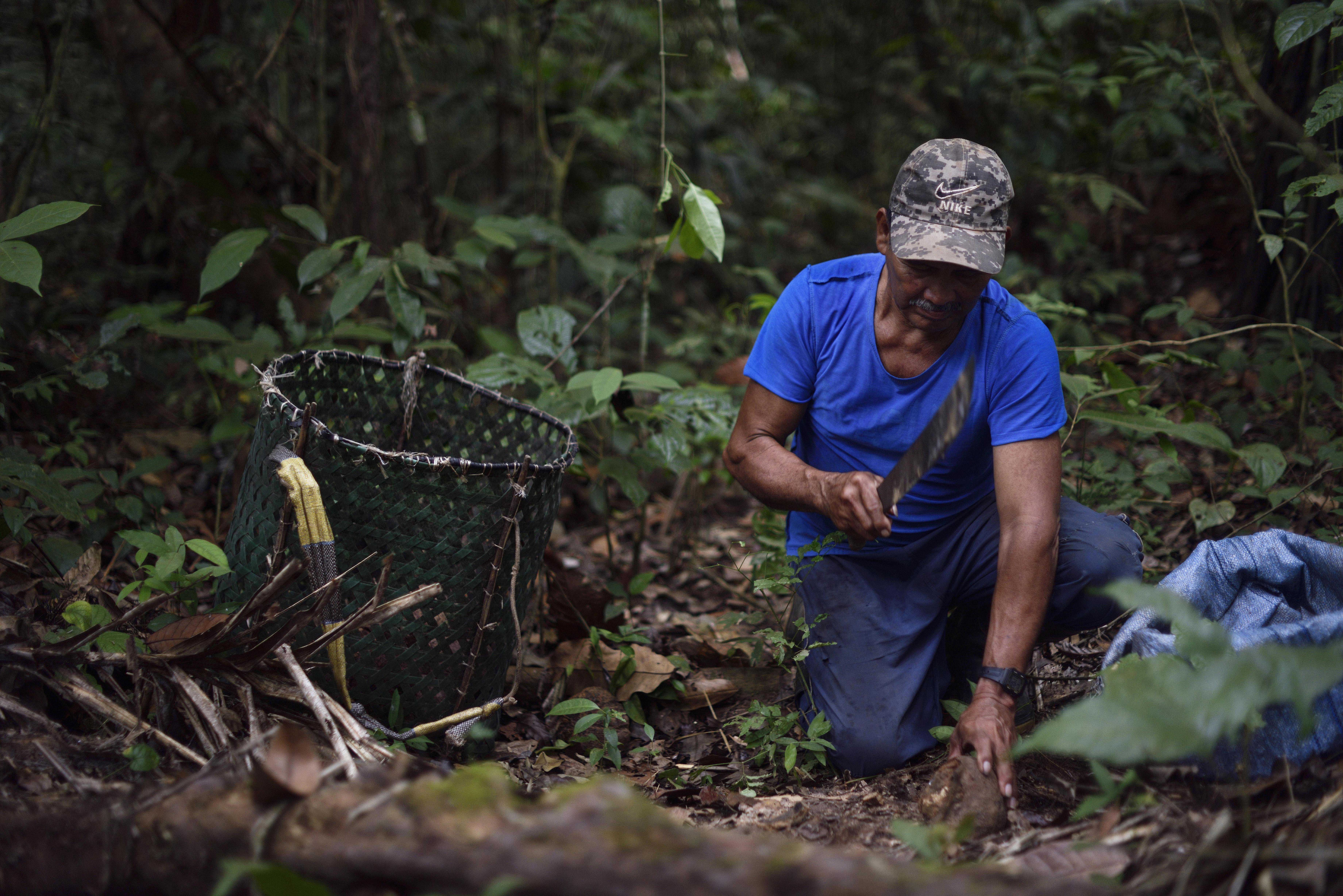 |
The project strengthens the links they have with other local actors, improves access to knowledge and information so they have different tools and can move forward if there are environmental changes that affect fruit production.
Protection of the endangered Gran Chaco area
Two of the projects work in the areas of influence of the Gran Chaco Americano, in an area of approximately 1,100,000 km² covering four countries. Despite its great biodiversity and ecosystems, it is one of the most deforested areas on the planet.
Faced with this situation, the Live and produce in the Chaqueño Forest project is generating and strengthening strategies for the sustainable development of the forest that consider its multifunctionality, to improve livestock management with the producers, and strengthen the different uses given to the forest, such as the production and extraction of honey, and the production of handicrafts based on "chaguar" (plant fibre weaving) and medicinal plant extracts.
"It is important to medicinal plants sustainably, take advantage of inputs for the creation of handicrafts, and work sustainably with livestock. Toward this end, it is vital that there be clear territorial management. In addition, it is important to be able to scale up these experiences and that the organisations in the area appropriate the results," says Gonzalo Bravo, project director and researcher at the National Institute of Agricultural Technology (INTA - Salta).
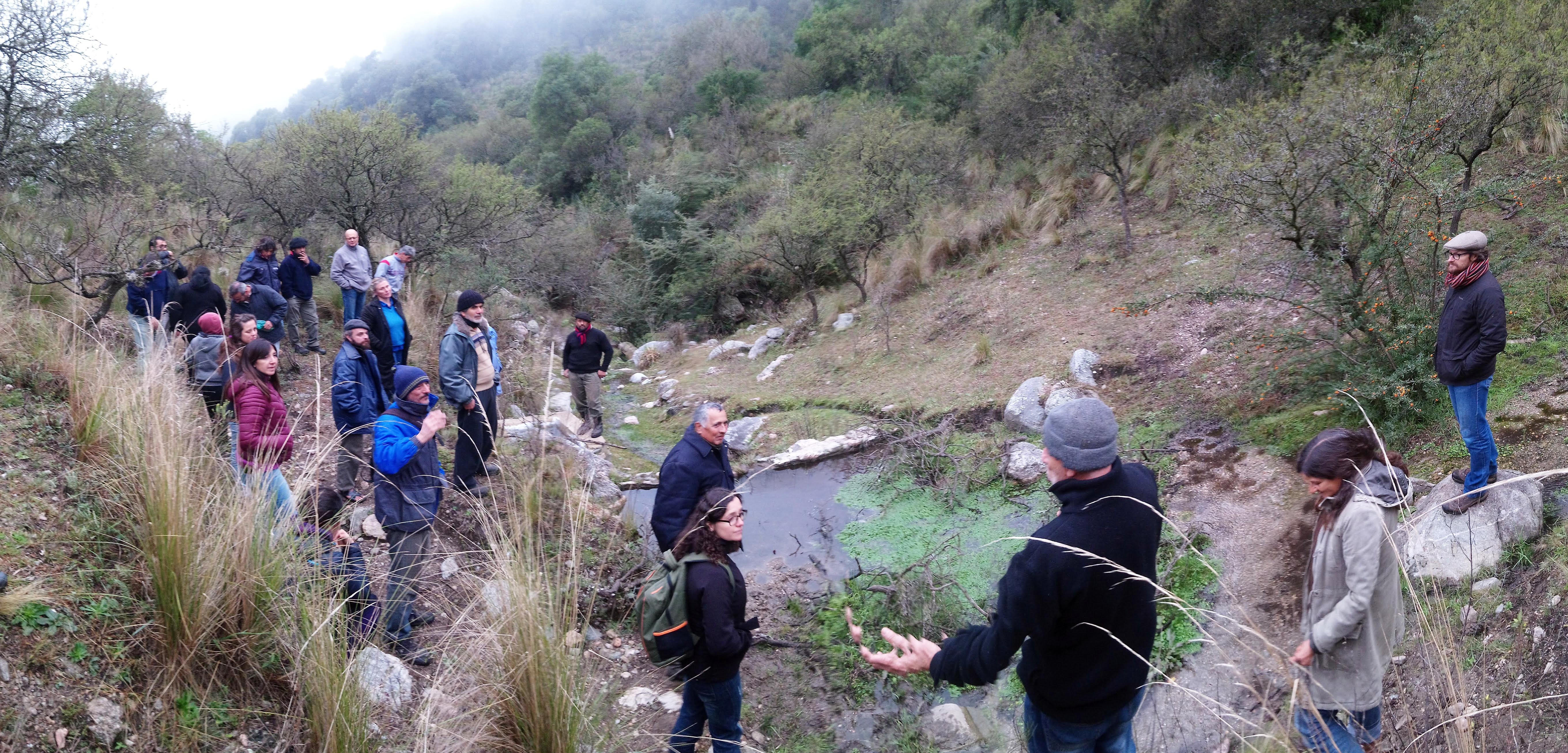 |
The project integrates the multifunctionality of the forests and works hand in hand with local communities, including indigenous peoples and Creole producers, to protect and use their territories under a sustainable development model.
"To date, there are sustainable management plans formulated and infrastructure works under way in two pilot areas, Córdoba and Santiago del Estero, both in Argentina," Gonzalo said.
Fire prevention
During the last few weeks, the fires in the Amazon, the Chaco and the Chiquitania attracted attention around the world, as the increase in fires was very significant compared to the same period in 2018. Faced with this problem, Michel reflects and explains that it is important to work on prevention, a very clear component in the projects. "There are very interesting experiences with the use of controlled fire, with very strict conditions: it serves to diminish the organic matter that accumulates in the undergrowth. It is therefore possible to reduce the impacts of very large forest fires. In addition, it is important to have an early warning system and to strengthen the networks of equipment installed in the regions in order to intervene strategically and quickly.
Facts
- The 9 projects included in the Forests, Biodiversity and Ecosystems component, whose implementation is led by Expertise France and the German Society for International Cooperation (GIZ), are carried out in Argentina, Bolivia, Brazil, Colombia, Costa Rica, El Salvador, Guatemala, Honduras, Mexico, Panama, Paraguay and Peru. Find out more about the projects here.
- The projects are developing innovative initiatives to adapt to climate change so that local communities and their territories can be more resilient to the effects of change. They also aim to be up scalable so that they can be shared in other countries.
- Central governments and municipalities are essential actors in projects because they allow organised and sustainable forest planning.
About EUROCLIMA+
EUROCLIMA+ is a programme funded by the European Union to promote environmentally sustainable and climate-resilient development in 18 Latin American countries, particularly for the benefit of the most vulnerable populations. The Programme is implemented under the synergistic work of seven agencies: Spanish Agency for International Development Cooperation (AECID), French Development Agency (AFD), Economic Commission for Latin America and the Caribbean (ECLAC), Expertise France (EF), International and Ibero-American Foundation for Administration and Public Policies (FIIAPP), the German Society for International Cooperation (GIZ), and UN Environment.
Photo credits
Ana Caroline de Lima
Project: Vivir y Producir en el Bosque Chaqueño

